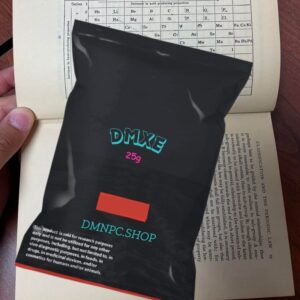Rolicyclidine (PCPy) is a dissociative anesthetic drug belonging to the arylcyclohexylamine class. It is a structural analogue of phencyclidine (PCP), sharing a similar chemical framework but with differences in potency and effects. PCPy is known to act as an NMDA receptor antagonist, which means it inhibits the activity of NMDA receptors in the brain, leading to dissociative and anesthetic effects.
Key Characteristics of PCPy:
- Chemical Structure: PCPy features a piperidine ring in place of the piperidine moiety found in PCP, resulting in slightly altered pharmacological properties.
- NMDA Receptor Antagonism: Like PCP, PCPy blocks NMDA receptors, disrupting normal communication in the central nervous system.
- Pharmacological Profile: PCPy has dissociative properties and produces effects such as sedation, altered perception, and mild hallucinations at certain doses.
Effects of Rolicyclidine (PCPy):
- Low Doses: Sedation, mild dissociation, and a sense of detachment.
- Moderate to High Doses: Distorted sensory perceptions, confusion, and potential hallucinations.
- Adverse Effects: Overuse may result in motor impairment, agitation, or cognitive disruption.
Research Applications:
PCPy is primarily studied in controlled settings to explore:
- Neuropharmacology: The role of NMDA receptors in dissociation and anesthesia.
- Structure-Activity Relationships (SAR): How structural modifications of arylcyclohexylamines affect receptor binding and potency.
- Toxicology Studies: Understanding its safety profile and potential side effects.
Important Information:
Rolicyclidine (PCPy) is a research chemical and is not approved for human or veterinary use. It is strictly intended for laboratory research purposes and should only be handled by qualified professionals.





Phoenix (verified owner) –
Discrete service.
Bryan (verified owner) –
Good quality Arylcyclohexylamine.
Max T (verified owner) –
Very well worth the money.
Max T (verified owner) –
Very well worth the money.